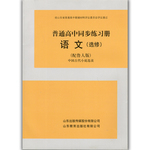题目内容
认真阅读下面短文,掌握其大意,然后从36—55各题所给的四个选项(A、B、C和D)中,选出最佳选项,并在答题卡上将该项涂黑。
You are travelling on an ocean ship when, suddenly a giant wave causes the ship to overturn. Hundreds of people die 36 , but you and several others 37 in the ballroom. Would you stay there and 38 for help? Or would you try, 39 the danger, to find your way out of the ship?
This is the 40 faced by the characters in the film “Poseidon”.
Trapped in the ballroom of the overturned ship, the 41 orders the surviving guests to wait for help. A small group of people 42 to accept this fate. They try to escape, knowing that there will be no way back 43 the captain locks the doors behind them.
At the time of the disaster, each of the characters is trying to overcome personal problems in their own lives. All must face their 44 and make life and death decisions.
Architect Richard Nelson is preparing to kill himself when the wave hits. He feels depressed over the 45 of his relationship with his partner. But he is forced to fight 46 his life, and learns to want to live again. He realizes he must 47 the past and not think too much about the bad.
Robert Ramsey, a fireman, decides to 48 his own life so that his daughter, Jen, 49 live. He swims to the ship’s control room 50 he must press a switch to change the direction of the ship.
He knows he will likely 51 in the process, but just as surely, he knows that it’s the only way his friends can escape. His actions give the others a chance to reach 52 . They escape from the ship just before it 53 , killing all those waiting inside and Jen’s father as well. All the characters who survive feel 54 to be alive, but they are also aware that their own 55 , bravery and determination saved their own lives.
36. A. gradually B. immediately C. finally D. individually
37. A. stay B. dance C. survive D. live
38. A. ask B. cry C. wait D. demand
39. A. despite B. in C. with D. except
40. A. position B. dilemma C. danger D. scene
41. A. director B. passenger C. sailor D. captain
42. A. refuse B. agree C. hesitate D. dislike
43. A. unless B. until C. once D. when
44. A. death B. survival C. courage D. fears
45. A. end B. departure C. failure D. difficulty
46. A. against B. for C. with D. over
47. A. let alone B. let out C. let go of D. let down
48. A. give out B. give away C. give in D. give up
49. A. might B. can C. would D. must
50. A. which B. there C. where D. then
51. A. succeed B. fail C. survive D. drown
52. A. home B. safety C. success D. destination
53. A. breaks B. explodes C. sinks D. overturns
54. A. relieved B. lucky C. relaxed D. happy
55. A. choices B. calmness C. fortune D. confidence
BCCAB DACDA BCDAC DBCBA

 海淀黄冈名师导航系列答案
海淀黄冈名师导航系列答案 普通高中同步练习册系列答案
普通高中同步练习册系列答案